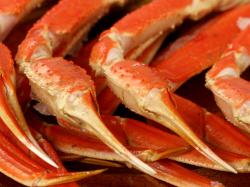NFI Crab Council Recognized By United Nations For Sustainability Work
September 30, 2015 | 2 min to read

September – The National Fisheries Institute’s (NFI) Crab Council is being recognized by the U.N. Global Compact for its industry-led sustainability programs. Throughout five Southeast Asian nations, the Crab Council supports Fisheries Improvement Plans (FIPs) aimed at improving the blue swimming crab resources and bringing effective management to the fishery.
The U.N. Global Compact is highlighting, “examples of global industry associations promoting sustainable development around the world.” The U.N. publication “Scaling Up Sustainability Collaboration: Contributions of Business Associations and Sector Initiatives to Sustainable Development” is designed as a tool for other industry associations across multiple sectors to help establish goals and spur coordination with stakeholders.
Crab Council Chairman Brendan Sweeny regards the U.N.’s distinction as an important benchmark for the Crab Council.
“The Crab Council’s model of fishery improvement has earned praise, grants and support from leading foundations and international organizations,” said Sweeny. “The Council’s recent acknowledgement by the U.N. Global Compact, which promotes business as a motivator of economic and social change, provides further reinforcement of the council’s industry-sponsored mission.”
The Crab Council’s work to preserve blue swimming crab as a natural and economic resource is funded through council members who assess themselves a fee on each pound of crab they import. The funds generated go towards sponsoring the council’s in-country sustainability projects and fishery improvement work.
The Council’s in country partners: the Indonesian Blue Swimming Crab Association (APRI) in Indonesia, the Philippine Association of Crab Processors (PACPI) in the Philippines, the Thai Crab Product Group (TCPG), the Crab Council of the Vietnam Association of Seafood Exporters and Producers (VASEP), and the Seafood Exporters’ Association of Sri Lanka (SEASL) are essential to the work being done.
“Blue swimming crab is a valued seafood item and an important export for many countries in Asia,” said Ed Rhodes, NFI Crab Council Executive Director. “The fishery management being put in place today by those closest to the resource, with Crab Council assistance, will help ensure crabs continue to fill nets and menus for years to come. The result is an ecologic and economic win.”
Source: National Fisheries Institute
